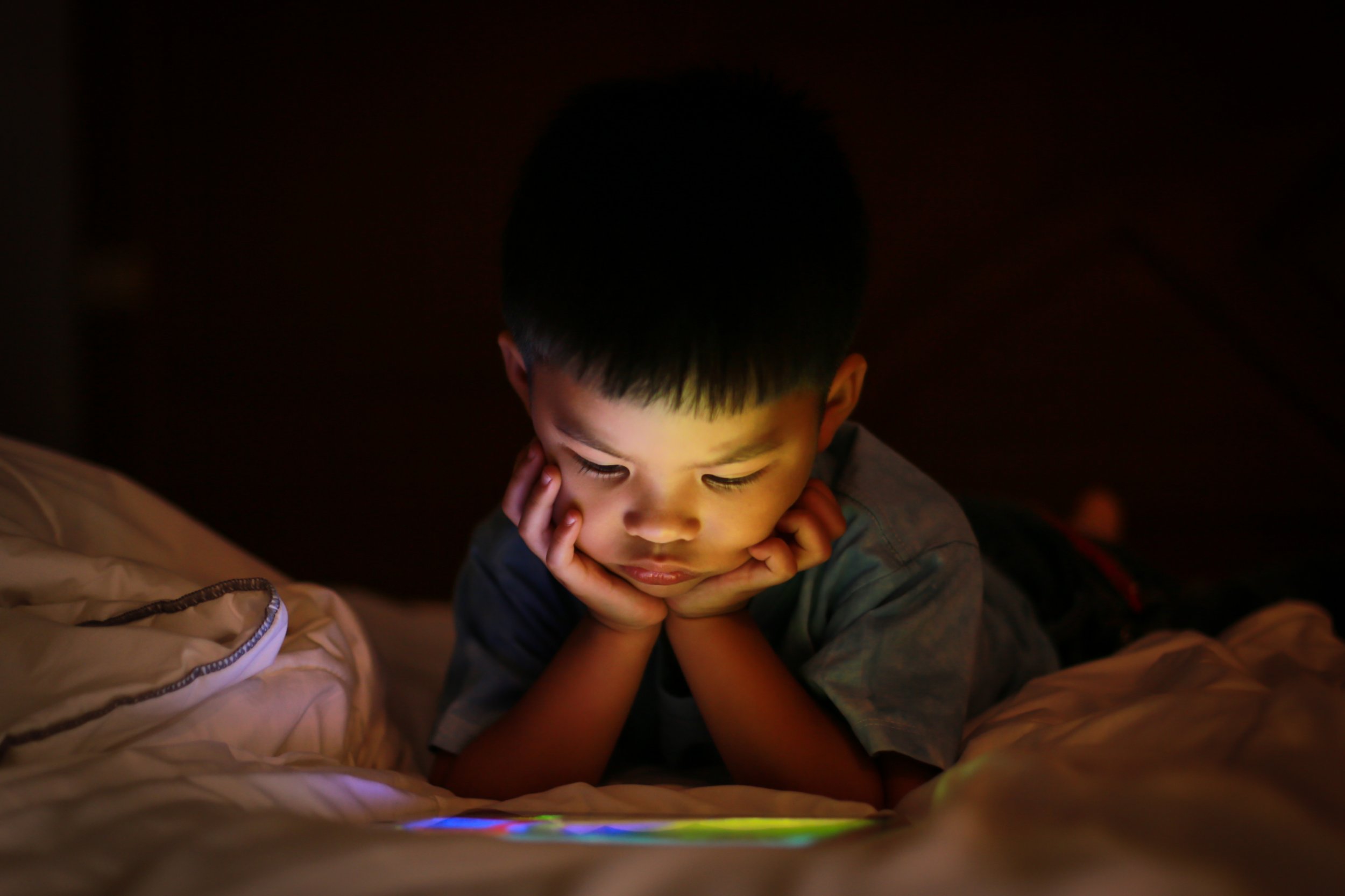
Kindergartners who use screens for more than two hours a day are more likely to show signs of behavioral problems, such as attention deficit hyperactivity disorder (ADHD), according to a study by Canadian scientists.
Existing research suggests preschool-age children in Canada use screens for two hours a day. So researchers set out to study the potential negative effects this might have on their development, including their attention span.
The research, published in the journal PLOS One, included 2,427 children from the cities of Edmonton, Toronto and Vancouver, as well as the province of Manitoba, who were taking part in the Canadian Healthy Infant Longitudinal Development (CHILD) study.
The study had their parents complete a frequently used questionnaire designed to pick up mental health and behavioral issues at age 3, and again at age 5. The parents were asked how much their children used screens, and how much they engaged in physical activity. They were also asked for other information, such as their socioeconomic status.
Screen time included watching more traditional media such as TVs and DVDs, as well as playing video games and using a computer, tablet or mobile phone.
The 5-year-old children who took part in the research were found to use screens for 1.4 hours per day on average, while 3-year-olds used them for 1.5 hours on average.
Using this data, the researchers placed the children into four categories, acording to the Canadian government's guideline that children between the ages of 5 and 13 should spend no more than two hours using screens, or one hour for 2- to 4-year-olds.
By age 5, 83 percent of the children used screens for less than two hours per day, but 317 interacted with screens for more than the recommended limit.
Compared with children who used screens for 30 minutes or less, children whose screen time passed the two-hour mark were more likely to manifest behavior problems, such as inattention, even when scientists took into account their socioeconomic status, sleep and stress levels. This group was 5.9 times more likely to have difficulty paying attention, and 7.7 times more likely to show symptoms of ADHD. Kids who exercised for more than two hours per week were less likely to experience mental health problems.
Sukhpreet K. Tamana, in the department of pediatrics at the University of Alberta and a co-author of the study, told Newsweek: "We were surprised to find that how much time spent using devices or watching TV had the strongest influence on preschool behavior, compared to other environmental, home or movement-behaviors considered in our study."
Tamana acknowledged that the study was limited, as it didn't include the type of media used.
The authors said their paper questioned whether such technology should be used in classrooms, and suggested that future studies should test if reducing the screen time of children showing behavioral problems could ease their symptoms. Researchers exploring this topic should try to find a causal link between screen time and child development, Tamana said, as the study only found a correlation.
"The study highlights that preschool is an ideal time to promote healthy relationships with screens, and that it's beneficial for parents to increase opportunities for other structured activities."
Past studies have linked screen time to poor eating habits, low-quality sleep, heart disease and obesity in children, the authors noted. Evidence suggests that using such devices could cut into the time children need for mental development. One study published earlier this year on Canadian children found that children who used screens for more than one hour a day at 24 months had a higher risk of developmental problems at 36 months, and 60 months. That work was published in the journal JAMA Pediatrics.
"Readers should take away the message that less than 30 minutes of screen time each day is the optimal amount for preschoolers," said Tamana.
Natalia Kucirkova, a professor of early childhood and development at the Norwegian Center for Learning Environment and Behavioral Research, University of Stavanger, who was not involved in the research, told Newsweek the study was "robust" in that it drew on a large representative sample from Canada.
But she pointed out two limitations: First, the study considered only the amount of screen time, not the types of content or whether the children were supervised by parents or joined by friends when they used their screens. Second, parents' subjective perceptions were used as a measure of a child's progress, which could skew the results.
"Many adults perceive children's and their own performance on screens as inferior," she said, "and Canadian parents would be aware of the many reports in the popular press about the negative impact of screens on children's development.
"The message to take away is (1) excessive screen time is not good, (2) effects depend on the content and circumstances of use, and (3) parents need to act as media mentors and consider how much their child's use, let alone their own use, displaces face-to-face interactions."
Uncommon Knowledge
Newsweek is committed to challenging conventional wisdom and finding connections in the search for common ground.
Newsweek is committed to challenging conventional wisdom and finding connections in the search for common ground.
About the writer
Kashmira Gander is Deputy Science Editor at Newsweek. Her interests include health, gender, LGBTQIA+ issues, human rights, subcultures, music, and lifestyle. Her ... Read more
To read how Newsweek uses AI as a newsroom tool, Click here.








